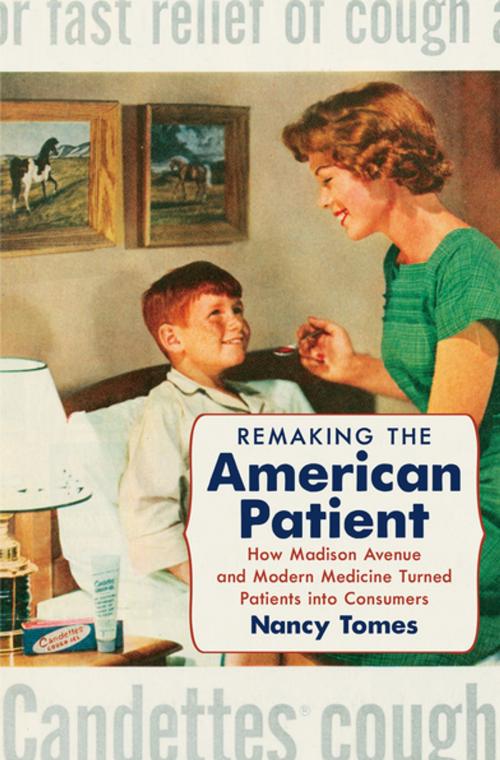Remaking the American Patient
How Madison Avenue and Modern Medicine Turned Patients into Consumers
Nonfiction, Health & Well Being, Medical, Patient Care, Health Care Delivery, Reference, Health Policy, History, Americas, United States, 20th Century| Author: | Nancy Tomes | ISBN: | 9781469622781 |
| Publisher: | The University of North Carolina Press | Publication: | January 6, 2016 |
| Imprint: | The University of North Carolina Press | Language: | English |
| Author: | Nancy Tomes |
| ISBN: | 9781469622781 |
| Publisher: | The University of North Carolina Press |
| Publication: | January 6, 2016 |
| Imprint: | The University of North Carolina Press |
| Language: | English |
In a work that spans the twentieth century, Nancy Tomes questions the popular--and largely unexamined--idea that in order to get good health care, people must learn to shop for it. Remaking the American Patient explores the consequences of the consumer economy and American medicine having come of age at exactly the same time. Tracing the robust development of advertising, marketing, and public relations within the medical profession and the vast realm we now think of as "health care," Tomes considers what it means to be a "good" patient. As she shows, this history of the coevolution of medicine and consumer culture tells us much about our current predicament over health care in the United States. Understanding where the shopping model came from, why it was so long resisted in medicine, and why it finally triumphed in the late twentieth century helps explain why, despite striking changes that seem to empower patients, so many Americans remain unhappy and confused about their status as patients today.
In a work that spans the twentieth century, Nancy Tomes questions the popular--and largely unexamined--idea that in order to get good health care, people must learn to shop for it. Remaking the American Patient explores the consequences of the consumer economy and American medicine having come of age at exactly the same time. Tracing the robust development of advertising, marketing, and public relations within the medical profession and the vast realm we now think of as "health care," Tomes considers what it means to be a "good" patient. As she shows, this history of the coevolution of medicine and consumer culture tells us much about our current predicament over health care in the United States. Understanding where the shopping model came from, why it was so long resisted in medicine, and why it finally triumphed in the late twentieth century helps explain why, despite striking changes that seem to empower patients, so many Americans remain unhappy and confused about their status as patients today.















